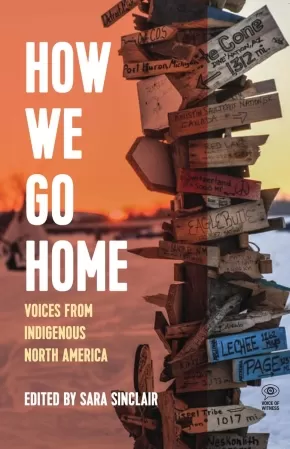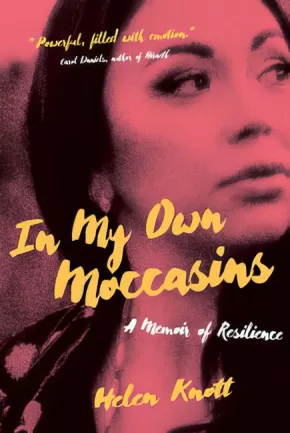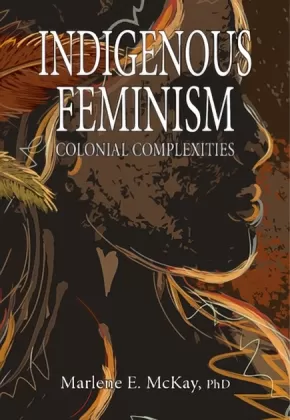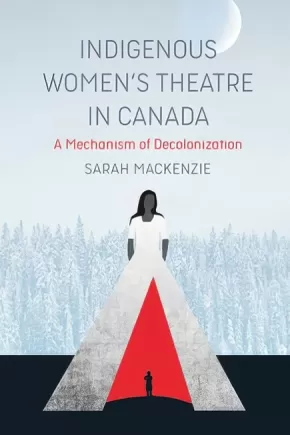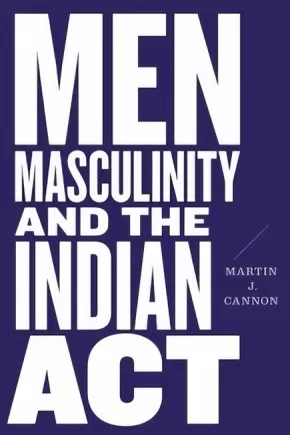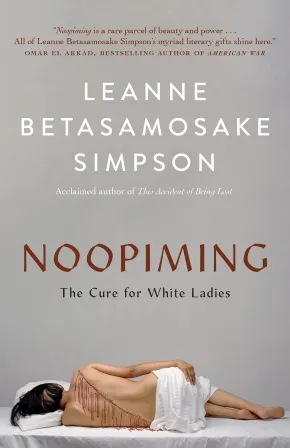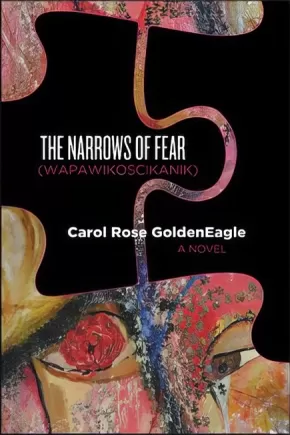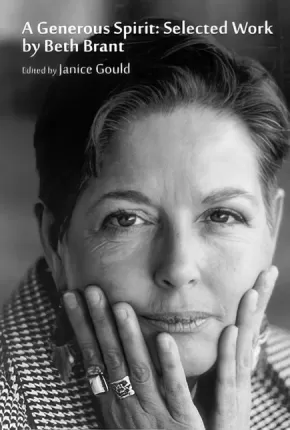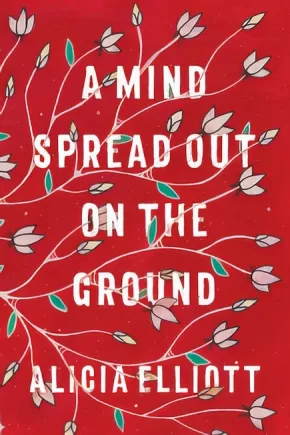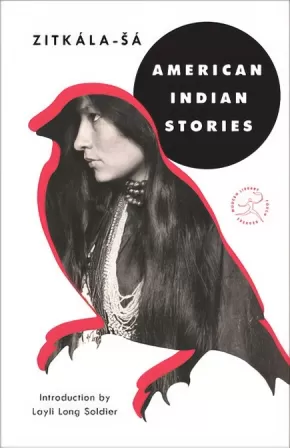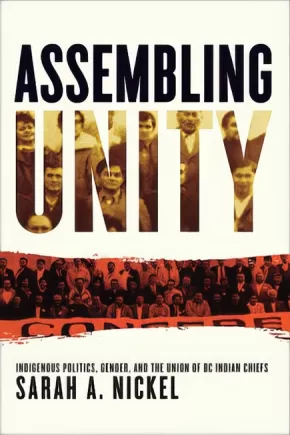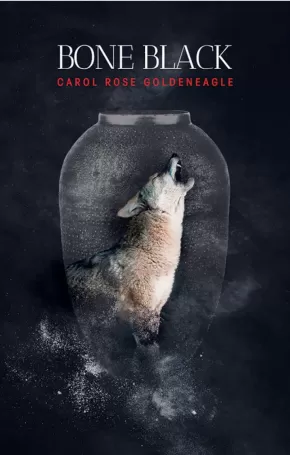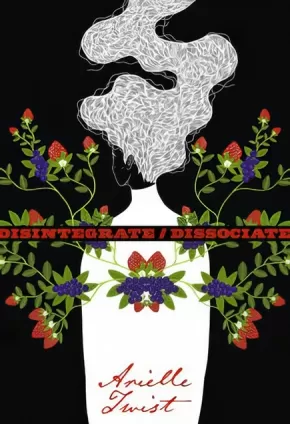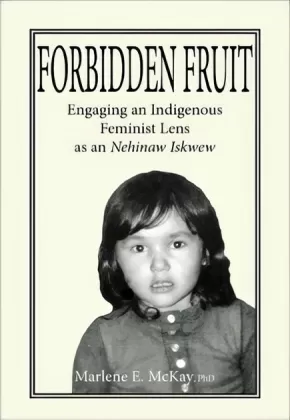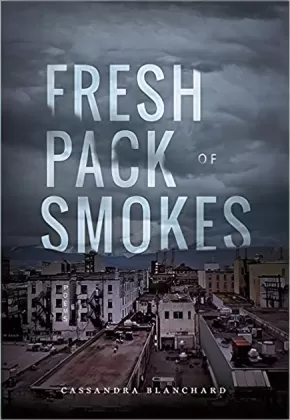Women's Studies
Synopsis:
In myriad ways, each narrator's life has been shaped by loss, injustice, and resilience--and by the struggle of how to share space with settler nations whose essential aim is to take all that is Indigenous.
Hear from Jasilyn Charger, one of the first five people to set up camp at Standing Rock, which kickstarted a movement of Water Protectors that roused the world; Gladys Radek, a survivor of sexual violence whose niece disappeared along Canada's Highway of Tears, who became a family advocate for the National Inquiry into Missing and Murdered Indigenous Women and Girls; and Marian Naranjo, herself the subject of a secret radiation test while in high school, who went on to drive Santa Clara Pueblo toward compiling an environmental impact statement on the consequences of living next to Los Alamos National Laboratory. Theirs are stories among many of the ongoing contemporary struggles to preserve Indigenous lands and lives--and of how we go home.
Reviews
“How We Go Home is a testament to modern-day Indigenous revitalization, often in the face of the direst of circumstances. Told as firsthand accounts on the frontlines of resistance and resurgence, these life stories inspire and remind that Indigenous life is all about building a community through the gifts we offer and the stories we tell.”— Niigaan Sinclair, associate professor, Department of Native Studies at the University of Manitoba and columnist, Winnipeg Free Press
“The voices of How We Go Home are singing a chorus of love and belonging alongside the heat of resistance, and the sound of Indigenous life joyfully dances off these pages.”—Leanne Betasamosake Simpson, author of As We Have Always Done
“How We Go Home confirms that we all have stories. These stories teach us history, morality, identity, connection, empathy, understanding, and self-awareness. We hear the stories of our ancestors and they tell us who we are. We hear the stories of our heroes and they tell us what we can be." —Honourable Senator Murray Sinclair
Educator Information
Table of Contents
Editor’s Notes
Introduction (Sara Sinclair)
Executive Director’s Note (Mimi Lok)
Map
Gladys Radek, Terrace, Gitxsan / Wet’suwet’en First Nations—“When Tamara went missing, it took the breath out of me.”
Jasilyn Charger, Cheyenne River Sioux—“My son’s buried by the river. . . . I vowed to him that he’s gonna be safe, that no oil was gonna touch him.”
Wizipan Little Elk, Rosebud Lakota Tribe—“On the reservation, you have the beauty of the culture and our traditional knowledge contrasted with the reality of poverty.”
Geraldine Manson, Snuneymuxw First Nation—The nurse was trying to get me to sign a paper to put our baby, Derrick, up for adoption.”
Robert Ornelas, New York City, Lipan Apache / Ysleta del Sur Pueblo—“A part of the soul sickness for me was being ashamed . . . what we were being taught about Indians was so minimal and so negative.”
Ashley Hemmers, Fort Mojave Indian Tribe—“I didn’t work my ass off to get to Yale to be called a squaw.”
Ervin Chartrand, Selkirk, Métís/Salteaux—“They said I fit the description because I looked like six other kids with leather vests and long hair who looked Indian.”
James Favel, Winnipeg, Peguis First Nation “You’re a stakeholder because you’ve got to walk these streets every day.”
Marian Naranjo, Santa Clara Pueblo—“Indigenous peoples’ reason for being is to be the caretakers of Creator’s gifts—of the air, the water, the land.”
Blaine Wilson, Tsartlip First Nation “When I was twenty-five, thirty, there was more salmon and I was fishing every other day. Now I’m lucky to go once a week.”
Althea Guiboche, Winnipeg, Métis/Ojibwe/Salteaux “I had three babies under three years old and I was homeless.”
Vera Styres, Six Nations of the Grand River, Mohawk/Tuscarora“I was a ‘scabby, dirty little Indian.’”
Glossary
Historical Timeline of Indigenous North America
Essay: 1. The Trail of Broken Promises: US and Canadian Treaties with First Nations
Essay 2: “Indigenous Perspectives on Intergenerational Trauma”: An Interview with Johnna James
Essay 3: Indigenous Resurgence
Ten Things You Can Do
Further Reading
Acknowledgements
Additional Information
331 pages | 6.00" x 9.00" | Paperback
Synopsis:
Helen Knott, a highly accomplished Indigenous woman, seems to have it all. But in her memoir, she offers a different perspective. In My Own Moccasins is an unflinching account of addiction, intergenerational trauma, and the wounds brought on by sexual violence. It is also the story of sisterhood, the power of ceremony, the love of family, and the possibility of redemption.
With gripping moments of withdrawal, times of spiritual awareness, and historical insights going back to the signing of Treaty 8 by her great-great grandfather, Chief Bigfoot, her journey exposes the legacy of colonialism, while reclaiming her spirit.
Reviews
"A beautiful rendering of how recovery for our peoples is inevitably about reconnecting with Indigenous identities, lands, cultural and healing practices." —Kim Anderson, author of Reconstructing Native Womenhood
"In My Own Moccasins never flinches. The story goes dark, and then darker. We live in an era where Indigenous women routinely go missing, our youth are killed and disposed of like trash, and the road to justice doesn’t seem to run through the rez. Knott’s journey is familiar, filled with the fallout of residential school, racial injustice, alcoholism, drugs, and despair. But she skillfully draws us along and opens up her life, her family, and her communities to show us a way forward. It’s the best kind of memoir: clear-eyed, generous, and glorious….Bear witness to the emergence of one of the most powerful voices of her generation." —Eden Robinson, author of Son of a Trickster and Monkey Beach (from the foreword)
“Helen Knott speaks truth to the experience of Indigenous women living through the violence of colonized spaces and she does so with grace, beauty and a ferocity that makes me feel so proud.” —Leanne Betasamosake Simpson, author of This Accident of Being Lost
“Helen writes beautifully and painfully, about her own life and the lives of many of our sisters. A strong, gentle voice removing the colonial blanket and exposing truth.” —Maria Campbell, author of Halfbreed
“An incredible debut that documents how trauma and addiction can be turned into healing and love. I am in awe of Helen Knott and her courage. I am a fan for life. Wow.” —Richard Van Camp, author of The Lesser Blessed
“Heartfelt, heartbreaking, triumphant and raw, In My Own Moccasinsis a must-read for anyone who's ever felt lost in their life… Actually, it's a must-read for anyone who appreciates stories of struggle, redemption and healing. Knott’s writing is confident, clear, powerful and inspiring.”—Jowita Bydlowska, author of Guy: A Novel and Drunk Mom
Additional Information
366 pages | 6.00" x 9.00"
Synopsis:
Indigenous Feminism: Colonial Complexities involves naming the ways that Indigenous women, with a focus on northern Saskatchewan, are caught up at every moment in ideas and beliefs about who we are; as much as we know differently, the power of these ideas continues to press on us in all kinds of large and subtle ways. The resistance to the power of these ideas and their impact on the lives of Indigenous women has a long history, but the racism continues. The book makes a contribution toward naming the power of racism and patriarchy within Indigenous communities.
Reviews
"McKay’s Indigenous Feminism: Colonial Complexities is a layered, methodical theoretical exploration of how the powerful forces and continually created discursive practises of colonialism, Christianity, the Indian Act and Indigenous knowledge systems influence single parent, northern Saskatchewan Indigenous women’s identities and relationships in complex and sometimes contradictory ways. The women’s visions of a better future anchor their decision-making as they swim against and through the overwhelming systemic legacy of oppressive forces running through their lives and that sometimes jeopardize their relationships." - Rita Bouvier, semi-retired Metis educator and poet
Additional Information
139 pages | 6.00" x 9.00"
Synopsis:
Despite a recent increase in the productivity and popularity of Indigenous playwrights in Canada, most critical and academic attention has been devoted to the work of male dramatists, leaving female writers on the margins. In Indigenous Women’s Theatre in Canada, Sarah MacKenzie addresses this critical gap by focusing on plays by Indigenous women written and produced in the socio-cultural milieux of twentieth and twenty-first century Canada.
Closely analyzing dramatic texts by Monique Mojica, Marie Clements, and Yvette Nolan, MacKenzie explores representations of gendered colonialist violence in order to determine the varying ways in which these representations are employed subversively and informatively by Indigenous women. These plays provide an avenue for individual and potential cultural healing by deconstructing some of the harmful ideological work performed by colonial misrepresentations of Indigeneity and demonstrate the strength and persistence of Indigenous women, offering a space in which decolonial futurisms can be envisioned.
In this unique work, MacKenzie suggests that colonialist misrepresentations of Indigenous women have served to perpetuate demeaning stereotypes, justifying devaluation of and violence against Indigenous women. Most significantly, however, she argues that resistant representations in Indigenous women’s dramatic writing and production work in direct opposition to such representational and manifest violence.
Educator Information
Table of Contents
Violence Against Indigenous Women and Dramatic Subversion
Reclaiming Our Grandmothers in Monique Mojica’s Princess Pocahontas and the Blue Spots and Birdwoman and the Suffragettes: A Story of Sacajawea
Community and Resistance in Marie Clements’ The Unnatural and Accidental Women and Now Look What You Made Me Do
Media, Gendered Violence, and Dramatic Resistance in Yvette Nolan’s Annie Mae’s Movement and Blade
Indigenous Women’s Theatre: A Transnational Mechanism of Decolonization
References
Index
Additional Information
200 pages | 6.00" x 9.00" | Paperback
Synopsis:
Canada’s Indian Act is infamously sexist. Through many iterations of the legislation a woman’s status rights flowed from her husband, and even once it was amended to reinstate rights lost through marriage or widowhood, First Nations women could not necessarily pass status on to their descendants.
That injustice has rightly been subject to much scrutiny, but what has it meant for First Nations men? In an original complement to studies focused on the implications of the act for women, Martin J. Cannon challenges the decades-long assumption of case law and politics that the act has affected Indigenous people as either “women” or “Indians” – but not both. He argues that sexism and racialization must instead be understood as interlocking within the law. This double discrimination has been used to disrupt gender complementarity between Indigenous men and women, and to undercut the identities of Indigenous men through their female forebears.
By restorying historically patriarchal legislation and Indigenous masculinity, Men, Masculinity, and the Indian Act encourages Indigenous men to begin to articulate the complex ways in which their life’s journey is shaped by discrimination directed at Indigenous women. Only then can a transformative discussion about Indigenous nationhood, citizenship, and reconciliation take place.
Scholars and students of Indigenous studies and gender studies will find this book of interest, as will activists, legal practitioners, and others concerned with Indigenous rights, feminism, nationhood, identity, and the Indian Act.
Reviews"
We need Martin Cannon’s meticulous and critical work to help us reimagine Indigenous identity in Canada. This book will long be a go-to reference for understanding the intersections of sexism and racism brought on by the Indian Act, and for determining sovereign identity pathways forward." — Kim Anderson, author of A Recognition of Being: Reconstructing Native Womanhood
Additional Information
192 pages | 6.00" x 9.00" | Paperback
Synopsis:
Award-winning Nishnaabeg storyteller and writer Leanne Betasamosake Simpson returns with a bold reimagination of the novel, one that combines narrative and poetic fragments through a careful and fierce reclamation of Anishinaabe aesthetics.
Mashkawaji (they/them) lies frozen in the ice, remembering a long-ago time of hopeless connection and now finding freedom and solace in isolated suspension. They introduce us to the seven main characters: Akiwenzii, the old man who represents the narrator’s will; Ninaatig, the maple tree who represents their lungs; Mindimooyenh, the old woman who represents their conscience; Sabe, the giant who represents their marrow; Adik, the caribou who represents their nervous system; Asin, the human who represents their eyes and ears; and Lucy, the human who represents their brain. Each attempts to commune with the unnatural urban-settler world, a world of SpongeBob Band-Aids, Ziploc baggies, Fjällräven Kånken backpacks, and coffee mugs emblazoned with institutional logos. And each searches out the natural world, only to discover those pockets that still exist are owned, contained, counted, and consumed. Cut off from nature, the characters are cut off from their natural selves.
Noopiming is Anishinaabemowin for “in the bush,” and the title is a response to English Canadian settler and author Susanna Moodie’s 1852 memoir Roughing It in the Bush. To read Simpson’s work is an act of decolonization, degentrification, and willful resistance to the perpetuation and dissemination of centuries-old colonial myth-making. It is a lived experience. It is a breaking open of the self to a world alive with people, animals, ancestors, and spirits, who are all busy with the daily labours of healing — healing not only themselves, but their individual pieces of the network, of the web that connects them all together. Enter and be changed.
Reviews
"Noopiming is a rare parcel of beauty and power, at once a creator and destroyer of forms. All of Leanne Betasamosake Simpson’s myriad literary gifts shine here — her scalpel-sharp humour, her eye for the smallest human details, the prodigious scope of her imaginative and poetic generosity. The result is a book at once fierce, uproarious, heartbreaking, and, throughout and above all else, rooted in love.” — Omar El Akkad, bestselling author of American War
"Noopiming is a novel that is as philosophically generative as it is stylistically original. It begins with someone who is frozen in a lake, waiting, and from whom we learn that: ‘being frozen in the lake is another kind of life.’ Leanne Betasamosake Simpson’s expansive work explores the indivisibility of beings — old woman, old man, tree, caribou, stone, ice, spirit, geese, the brain, and more, all watching, grieving, thinking, acting, and listening amidst the ongoing and quotidian urgencies of capital. They are sleepless, ceaseless, trying to alter and to recode the world of consumerism, and their survival means that they must daily and collectively reconstruct existence in the city and its coterminous forests. Noopiming is far ahead of us in so many registers of story, language, and worldview; its cumulative effect is a new cosmography.” — Dionne Brand, award-winning author of Theory
"This imaginative book is what would happen if we gave pen and paper to the deepest, most secretive parts of ourselves. Down to the fibres, down to each breath, Leanne Betasamosake Simpson dares to not only explore the humanity of a character, but the humanity of the parts that make us whole, in a world running on empty.” — Catherine Hernandez, bestselling author of Scarborough
"Leanne Betasamosake Simpson’s Noopiming once again confirms her position as a brilliant, daring experimentalist and a beautiful, radical portraitist of contemporary NDN life. The prose hums with a lovingness that moved me to tears and with a humour that felt plucked right out of my rez adolescence. The chorus of thinkers, dreamers, revolutionaries, poets, and misfits that Simpson conjures here feels like a miracle. My heart ached and swelled for all of them. What I adored most about this book is that it has so little to do with the white gaze. Simpson writes for us, for NDNs, those made to make other kinds of beauty, to build other kinds of beautiful lives, where no one is looking. Noopiming is a book from the future! Simpson is our much-needed historian of the future!” — Billy-Ray Belcourt, award-winning author of This Wound is a World and NDN Coping Mechanisms
"How is it that Leanne Betasamosake Simpson’s fiction can feel both familiar and warm like old teachings and absolutely fresh and brand new? Is it even fiction? Noopiming seems to exist somewhere in the in-between, with all the best parts of poetry and story. As always, I am in awe of Leanne Betasamosake Simpson, prolific in every way.” — Katherena Vermette, bestselling author of The Break
Additional Information
368 pages | 5.50" x 8.50"
Synopsis:
The Narrows of Fear (Wapawikoscikanik) weaves the stories of a group of women committed to helping one another. Despite abuse experienced by some, both in their own community and in residential schools, these women learn to celebrate their culture, its stories, its dancing, its drums, and its elders. Principal of these elders is Nina, the advisor at the women's shelter. With the help of Sandy and Charlene, Nina uses Indigenous practices to heal the traumatized Mary Ann. This is a powerful novel; sometimes brutally violent, sometimes healing, sometimes mythical, and always deeply respectful of the Indigenous culture at its heart.
Reviews
"Strong women united in friendship and solidarity are an unstoppable force. These characters will stay with you. This story is haunting in all the good ways." -Katherena Vermette, author of The Break
"Even though fiction, Narrows of Fear (Wapawikoscikanik) is an authentic telling of Truth as its characters wrestle with the trauma of inter-generational violence and abuse rooted in the colonization of Indigenous peoples. It is also an honouring of language, of culture, of dreams, and of Spirit. A story of courage, of hope and healing, it is a welcome addition to the widening and strengthening of Circle for all. Hiy Hiy Osawa Mikisew Iskwew." -Lorrie Potvin, author of First Gear: A Motorcycle Memoir, and the forthcoming, Horses in the Sand
"Carol Rose GoldenEagle's novel, The Narrows of Fear (Wapawikoscikanik) is a powerful and compelling novel about Aboriginal women reclaiming and celebrating our Indigenous culture, traditions, and ways of knowing. Collective knowledge can heal and strengthen humanity when women are given space to do so. A must-read for all women!"-Beverly Little Thunder, author of One Bead at a Time: A Memoir
Additional Information
240 pages | 5.50" x 8.25" | Paperback
Synopsis:
A Generous Spirit: Selected Work by Beth Brant collects the writing of Beth Brant, Mohawk lesbian poet, essayist, and activist. During her life, Brant's work gave voice to an often unacknowledged Two-Spirit identity, and today, her words represent continued strength, growth, and connection in the face of deep suffering. A Generous Spirit is Brant's portrait of survival and empathy at the intersection of Native American and lesbian experience.
Edited by noted Native poet and scholar Janice Gould, A Generous Spirit recounts and enacts the continuance of her people and her sisters with distinct, organic voices and Brant's characteristic warmth. Her work is a simultaneous cry of grief and celebration of human compassion and connection in its shared experience. Through storytelling, her characters wrest their own voices from years of silence and find communion with other souls.
Additional Information
200 pages | 5.37" x 8.50"
Synopsis:
A bold and profound work by Haudenosaunee writer Alicia Elliott, A Mind Spread Out on the Ground is a personal and critical meditation on trauma, legacy, oppression and racism in North America.
In an urgent and visceral work that asks essential questions about the treatment of Native people in North America while drawing on intimate details of her own life and experience with intergenerational trauma, Alicia Elliott offers indispensable insight and understanding to the ongoing legacy of colonialism. What are the links between depression, colonialism and loss of language--both figurative and literal? How does white privilege operate in different contexts? How do we navigate the painful contours of mental illness in loved ones without turning them into their sickness? How does colonialism operate on the level of literary criticism?
A Mind Spread Out on the Ground is Alicia Elliott's attempt to answer these questions and more. In the process, she engages with such wide-ranging topics as race, parenthood, love, mental illness, poverty, sexual assault, gentrification, writing and representation. Elliott makes connections both large and small between the past and present, the personal and political--from overcoming a years-long history with head lice to the way Native writers are treated within the Canadian literary industry; her unplanned teenage pregnancy to the history of dark matter and how it relates to racism in the court system; her childhood diet of Kraft dinner to how systematic oppression is linked to depression in Native communities. With deep consideration and searing prose, Elliott extends far beyond her own experiences to provide a candid look at our past, an illuminating portrait of our present and a powerful tool for a better future.
Reviews
"This book is hard, vital medicine. It is a dance of survival and cultural resurgence. Above all, it is breathtakingly contemporary Indigenous philosophy, in which the street is also part of the land, and the very act of thinking is conditioned by struggles for justice and well-being." —Warren Cariou, author of Lake of the Prairies
"These essays are of fiercest intelligence and courageous revelation. Here, colonialism and poverty are not only social urgencies, but violence felt and fought in the raw of the everyday, in embodied life and intimate relations. This is a stunning, vital triumph of writing." —David Chariandy, author of Brother
"Wildly brave and wholly original, Alicia Elliot is the voice that rouses us from the mundane, speaks political poetry and brings us to the ceremony of everyday survival. Her words remind us to carry both our weapons and our medicines, to hold both our strength and our open, weeping hearts. A Mind Spread Out on the Ground is what happens when you come in a good way to offer prayer, and instead, end up telling the entire damn truth of it all." —Cherie Dimaline, author of The Marrow Thieves
"A Mind Spread Out on the Ground is a new lens on Indigenous Canadian literature." —Terese Marie Mailhot, author of Heart Berries
"We need to clone Alicia Elliott because the world needs more of this badass writer. A Mind Spread Out on the Ground showcases her peculiar alchemy, lighting the darkest corners of racism, classism, sexism with her laser-focused intellect and kind-hearted soul-searching. A fresh and revolutionary cultural critic alternately witty, vulnerable and piercing." —Eden Robinson, author of Son of a Trickster and Trickster Drift
"The future of CanLit is female, is Indigenous—is Alicia Elliott. I anticipate this book to be featured on every 'best of' and award list in 2019, and revered for years to come." —Vivek Shraya, author of I’m Afraid of Men and even this page is white
"In A Mind Spread Out on the Ground, Elliott invites readers into her unceded mind and heart, taking us on a beautiful, incisive and punk rock tour of Tuscarora brilliance. Elliott's voice is fire with warmth, light, rage and endless transformation." —Leanne Betasamosake Simpson, author of This Accident of Being Lost
"Alicia Elliott has gifted us with an Indigenous woman's coming of age story, told through engagingly thoughtful, painfully poignant and enraging essays on race, love and belonging. With poetic prose and searing honesty, she lays bare what it is like to grow up Indigenous and exist in a country proud of its tolerance, but one that has proven to be anything but. She opens eyes and captures hearts, leading you by the hand to see our fractured world through her eyes. Alicia is exactly the voice we need to hear now." —Tanya Talaga, author of Seven Fallen Feathers
"Incisive. That's the word I keep coming back to. A Mind Spread out on the Ground is incredibly incisive. Alicia Elliot slices through the sometimes complicated, often avoided issues affecting so many of us in this place now called Canada. She is at once political, personal, smart, funny, global and, best of all, divinely human. Necessary. That's the other word I keep thinking about. In every chapter, she manages to find the perfect word and the precise argument needed—I found myself saying 'yes, yes, that is exactly it' more than once. I am so grateful for her work." —Katherena Vermette, author of The Break
"A Mind Spread Out on the Ground is an astonishing book of insightful and affecting essays that will stay with you long after the final page." —Zoe Whittall, author of The Best Kind of People
Additional Information
240 pages | 5.75" x 8.50"
Synopsis:
A groundbreaking Dakota author and activist chronicles her refusal to assimilate into nineteenth-century white society and her mission to preserve her culture—with an introduction by Layli Long Soldier, winner of the National Book Critics Circle Award and the PEN/Jean Stein Book Award for Whereas.
Bright and carefree, Zitkála-Šá grows up on the Yankton Sioux reservation in South Dakota with her mother until Quaker missionaries arrive, offering the reservation’s children a free education. The catch: They must leave their parents behind and travel to Indiana. Curious about the world beyond the reservation, Zitkála-Šá begs her mother to let her go—and her mother, aware of the advantages that an education offers, reluctantly agrees.
But the missionary school is not the adventure that Zitkála-Šá expected: The school is a strict one, her long hair is cut short, and only English is spoken. She encounters racism and ridicule. Slowly, Zitkála-Šá adapts to her environment—excelling at her studies, winning prizes for essay-writing and oration. But the price of success is estrangement from her cultural roots—and is it one she is willing to pay?
Combining Zitkála-Šá’s childhood memories, her short stories, and her poetry, American Indian Stories is the origin story of an activist in the making, a remarkable woman whose extraordinary career deserves wider recognition.
Additional Information
160 pages | 5.18" x 8.00"
Synopsis:
Established narratives portray Indigenous unity as emerging solely in response to the political agenda of the settler state. But unity has long shaped the modern Indigenous political movement. With Indigenous perspectives in the foreground, Assembling Unity explores the relationship between global political ideologies and pan-Indigenous politics in British Columbia through a detailed history of the Union of BC Indian Chiefs. Sarah Nickel demonstrates that the articulation of unity was heavily negotiated between UBCIC members, grassroots constituents, and Indigenous women’s organizations. This incisive work unsettles dominant political narratives that cast Indigenous men as reactive and Indigenous women as apolitical.
This book will appeal to scholars and students of history, BC studies, and Indigenous studies, particularly those with an interest in gender and politics. It will also find an audience among Indigenous communities, activists, and political leaders.
Reviews
"Assembling Unity is a much needed resource that should be read by those wanting to learn about the historical issues BC Indigenous communities have faced – the same issues we continue to raise with current Canadian governments with little improvement." - Francyne Joe, President of the Native Women’s Association of Canada and member of the Shackan First Nation
Educator Information
Related Topics: BC Studies, Indigenous Studies, Canadian History, Gender & Sexuality Studies, History, Regional Studies, Women's Studies.
Table of Contents
Beginnings
Part 1: Pan-Indigenous Unity
1 Unity: “United we stand, divided we perish”
2 Authority: “Ordinary Indians” and “the private club”
3 Money: “A blessing and a golden noose”
Part 2: A Philosophical Revolution and Competing Nationalisms
4 Refusal: “Empty words and empty promises”
5 Protest: Direct Action through “Militant May”
6 Sovereignty: “If you really believe that you have the right, take it!”
Reflections
Appendix
Notes
Bibliography
Index
Additional Information
236 pages | 6.00" x 9.00" | 1 b&w photo, 2 maps, 3 tables
Synopsis:
There are too many stories about Indigenous women who go missing or are murdered, and it doesn’t seem as though official sources such as government, police or the courts respond in a way that works toward finding justice or even solutions. At least that is the way Wren StrongEagle sees it.
Wren is devastated when her twin sister, Raven, mysteriously disappears after the two spend an evening visiting at a local pub. When Wren files a missing persons report with the local police, she is dismissed and becomes convinced the case will not be properly investigated. As she follows media reports, Wren realizes that the same heartbreak she’s feeling is the same for too many families, indeed for whole Nations. Something within Wren snaps and she decides to take justice into her own hands. She soon disappears into a darkness, struggling to come to terms with the type of justice she delivers. Throughout her choices, and every step along the way, Wren feels as though she is being guided. But, by what?
Additional Information
256 pages | 5.50" x 8.50"
Synopsis:
In her powerful debut collection of poetry, Arielle Twist unravels the complexities of human relationships after death and metamorphosis. In these spare yet powerful poems, she explores, with both rage and tenderness, the parameters of grief, trauma, displacement, and identity. Weaving together a past made murky by uncertainty and a present which exists in multitudes, Arielle Twist poetically navigates through what it means to be an Indigenous trans woman, discovering the possibilities of a hopeful future and a transcendent, beautiful path to regaining softness.
Awards
- 2020 Indigenous Voices Awards Winner for Published Poetry in English
Additional Information
|
Synopsis:
Forbidden Fruit: Engaging an Indigenous Feminist Lens as an Neninaw Iskwew is a feminist based memoir acknowledging that people are measured, categorized, and placed in a hierarchal order that is deeply influenced by discourses predicated upon social processes.
Dr. McKay’s Indigenous feminism is about being aware that due to the colonial patriarchy that has seeped through Indigenous social and cultural systems, Indigenous women are positioned differently in economic, social and political structures. Marlene masterfully uses her own life experiences to assert that colonialism and Indigenous cultures obscure the role of women in a way that continues both their marginalization and the binary of the princess/squaw (p. 11).
Additional Information
98 pages | 6.00" x 9.00"
Synopsis:
“This night in Oppenheimer Park Dan asked me to shit-kick this chick in the face as she owed money and I said no because I didn’t know who she was and I wasn’t about to play with fire so he sat on the bench then stood up and did a flying kick twice to her chin and she convulsed and passed out he said he didn’t want to spill blood because she had HIV…”—“Tales”
Dissecting herself and the life she once knew living in Vancouver’s Downtown Eastside as a bonafide drug addict, Blanchard writes plainly about violence, drug use and sex work in Fresh Pack of Smokes, offering insight into an often overlooked or misunderstood world.
Reviews
“Reading Cassandra Blanchard’s debut poetry collection Fresh Pack of Smokes feels like, to borrow a phrase from her work, someone “poured a bucket of blood” on your head. Such visceral images flood the pages of Blanchard’s autobiographical stories, pulling readers in with humanizing force.” - Emma Cooper, The Tyee
Educator Information
Recommended in the Canadian Indigenous Books for Schools 2019-2020 resource list as being useful for grade 12 students for the following subjects: English Language Arts, Social Justice.
Contains foul and sexual language, graphic content, violence, interpersonal abuse, and drug use, which may be disturbing to some readers.
Additional Information
96 pages | 5.50" x 8.00"

